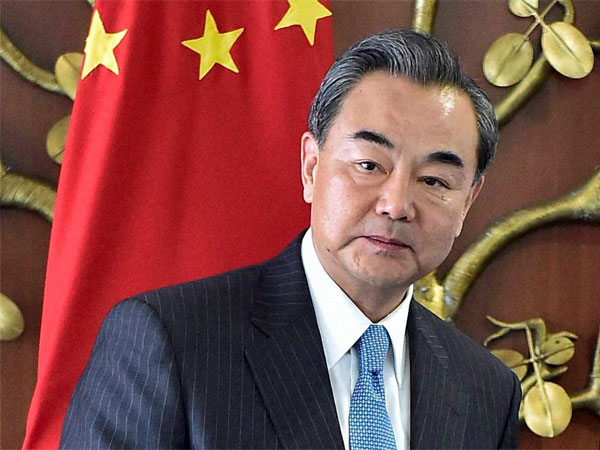Two important speeches — one delivered by the Foreign Minister of the People’s Republic of China (PRC) Wang Yi on July 3 in the 9thWorld Peace Forum held at Tsinghua University and another delivered by President Xi Jinping during the video conference of the Asia-Pacific Economic Cooperation (APEC) on July 16 – revealed the comprehensive features and new emphases of Chinese multilateralism.
First and foremost, Wang began his speech by pointing to the peaceful development of the Communist Party of China (CPC) – the first feature of Chinese multilateralism. He referred to the historical speech made by CPC General Secretary Xi Jinping on July 1, emphasizing that the CPC is deeply concerned about the “destiny of the human mankind.” Wang Yi also stressed that the CPC does not seek hegemonism and expansion while promoting world peace.
Second, according to Wang, the CPC insists in the principles of fairness, justice, the promotion of “freedom and liberation” of the human being with equal treatment to all countries, regardless of whether their size is big or small, whether their power is strong or weak, and whether their wealth is poor or rich. Most importantly, Wang said that China is opposed to not only the foreign intervention in a country’s domestic affairs but also the utilization of might and power to exploit the weak states.
Third, the Chinese foreign minister emphasized that, in its 100 years of development, the CPC has been insisting on the principles of mutual cooperation, win-win situation and the open strategy of collaborating with other countries in the world. As such, China has been adopting the tenet of mutual collaboration to eliminate confrontations and to replace any zero-sum game with mutual benefits. Wang added that the tensions, conflicts and turbulence in the world are attributable to the zero-sum game mentality and unilateralism, which runs counter to the path of “permanent peace and mutual security” (Wen Wei Po, July 4, 2021, p. A14).
Fourth, Wang Yi appealed to all countries in the world to construct an “immunity Great Wall” by abandoning political biases, adopting the principle of protecting public health of the mankind, and pursuing the idea of treating vaccines as public goods to stop the spread of Covid-19 and its mutating viruses. Similarly, on climate change, China is striving for the achievement of carbon neutrality before 2060. Wang cautioned all countries in the world to deal with the non-conventional security threat of terrorism, extremism, and the triangular linkage between extremist actions, nationalities and religions. In fact, Wang’s points were reiterated by President Xi Jinping when the latter delivered his speech in the video conference of the APEC on July 16. President Xi added that China would provide more vaccines and economic aid to the developing countries in the coming three years.
Sixth, Wang stressed the need for domestic peace and stability through the quest for political solutions. Examples he gave include Afghanistan and Burma where domestic dialogue among contending groups is essential. On the question of Afghanistan, Wang appealed to the US to ensure stable and peaceful transition. On Burma, he said that China supports the Association of Southeast Asian Nations (ASEAN) to promote a “soft landing” approach in coping with domestic turbulence and that anti-Covid measures and economic aid should be provided. Regarding the relations between Palestine and Israel, Wang Yi said that both sides should resume dialogue and negotiations. On Iran’s nuclear development, Wang believed that the US should withdraw its unilateral sanctions. In short, the Chinese multilateralism is characterized by an emphasis on mutual dialogue and negotiations rather than resorting to confrontations.
Seventh, China opposes the Cold War approach of moving toward a dangerous tendency of splittist confrontations. Wang Yi said that a divided world is bound to bring about disasters to the mankind. As such, he appealed to countries in the world to resist confrontations among power blocs, strong power politics and external interventions in the domestic affairs of various countries.
Eighth, Wang elaborated on the PRC’s position toward Hong Kong and Taiwan by saying that China is no longer the weak country over 100 years ago. He said: “Any person and any force cannot underestimate the resolute determination and strong capability of the Chinese people to protect national sovereignty, national security and developmental interest.”
Ninth, President Xi Jinping on July 16 emphasized that countries in the world should promote trade, investment and economic liberalization rather than building up a wall to protect themselves. He also stressed the importance of economic integration, globalization, openness, tolerance and balanced development.

Tenth, the Marxism Study Center of the Chinese Academy of Social Sciences (CASS) on July 3 published a Yellow Paper on the “international common destiny,” saying that socialist countries in the world showed their excellence in the process of dealing with global turbulence and the spread of Covid-19. Most significantly, the CPC’s centralized leadership is pivotal in socialist China’s response to global turbulence, while the socialist states in the world should resist the so-called “democratic alliance” led by Western countries. Hence, underlying the Chinese multilateralism is a strong tone of rallying the socialist world to resist the “encroachment” of the Western “democratic alliance.”
The key elements of Chinese multilateralism could also be identified on July 6, when President Xi Jinping held a virtual conference with the French President Emmanuel Macron and the German Chancellor Angela Merkel. He told the French and German leaders that, firstly, the CPC insisted in the principles of maintaining peace, development, fairness, justice, democracy and the freedom of human mankind to cooperate with Europe. Secondly, Chinese multilateralism is to be maintained and strengthened. Thirdly, China is keen to expand the mutually beneficial relations with France and Germany. Finally, the construction of stability and balanced development is the “great power” relationship adopted by the PRC. According to President Xi, China welcomes France and Germany to develop Africa further.
Clearly, the PRC leaders have been assertively expanding the Chinese multilateralism to all countries in the world, engaging different developed countries and helping the developing states to achieve peace and sustainable development.
On July 16, when President Xi was accompanied by Politburo Standing Committee member Wang Huning to visit the Central Gifts and Cultural Center, which exhibited all the gifts given to China during the CPC and national leaders’ foreign visits, he stressed that all these gifts contained tremendous historical value and rich content. The reason is that the Chinese people have established close and profound emotional bonds with the peoples in different countries. These gifts also symbolized the efforts made by the CPC to strive for the progress of mankind. The CPC, according to the President, will continue to construct new international relations, promote the “common destiny for the mankind” and utilize the Belt and Road initiatives to develop high-quality development of the world. The center’s exhibition showed 670 items of gifts, 40 photographs and 100 artifacts and documents. The exhibition was divided into three themes: “independence, autonomy, peaceful coexistence;” “open cooperation and peaceful development;” and “common path and common destiny.” The remarks of President Xi and the content of the exhibition demonstrated that China is now adopting a great power diplomacy, emphasizing multilateralism and the peaceful development with all countries in the world.
In conclusion, the new features of Chinese multilateralism can be identified from the remarks of President Xi Jinping, Foreign Minister Wang Yi and the significant exhibition of China’s diplomatic relations and gifts received from various countries. If China is becoming far more self-confident in its foreign relations, the Chinese multilateralism is clearly a new emphasis characterized by the CPC-led peaceful development; fairness and justice in China’s international relations; win-win cooperation; the quest for global public health and sustainable development; the call for political solutions and dialogue in international conflicts and disputes; the resistance to confrontation and opposition to foreign intervention in domestic affairs; the insistence in the protection of national sovereignty and security; the promotion of economic liberalization and integration; and the call for solidarity among the socialist states. All these characteristics are perhaps a mirror of China’s rise and its “great power” diplomacy.





















